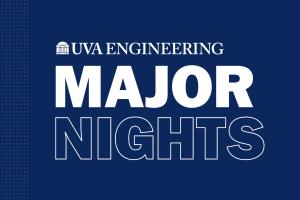Upcoming Events
The University of Virginia School of Engineering and Applied Science sponsors many events of interest to alumni, friends, faculty, students and the community.
-

JunkLabz Drop Off Event!
Drop off pipette boxes to be recycled into art & architecture! Support UVA’s Green Labs & JunkLabz in turning lab waste into learning. 🌱♻️🎨
Time: 9:00 AM - 11:00 AMLocation: Pinn Conference Center, Ground 1 and 2 -

CS Fall Fest
Join us for games, crafts, snacks, cider, and FUN!
Time: 3:30 PM - 5:30 PMLocation: Darden Court -
CEE Seminar Series: Ryan Calder - Virginia Tech
Coupling Energy Systems Models with Citizen Juries to Advance Decarbonization
Time: 3:30 PM - 4:30 PMLocation: Olsson 001 -

MAE Seminar Series: Jennifer Colborn, University of Texas at San Antonio
Time: 4:00 PM - 5:00 PMLocation: MEC 341 -
UVA Research Showcase
The UVA Research Showcase provides a face-to-face venue for undergraduate students interested in research to connect with faculty and explore what research is being performed across Grounds.
Time: 11:00 AM - 2:00 PMLocation: Newcomb Hall Ballroom
